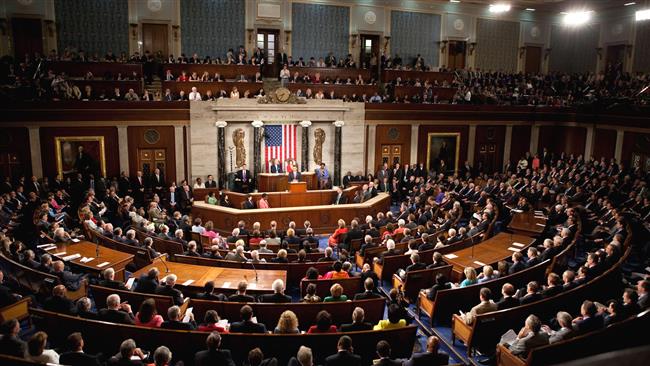
RNA - The legislation would set mandatory sanctions for anyone involved with Iran's missile program and those who trade with them. It would also apply sanctions to the Islamic Revolution Guards Corps. This is while Iran’s missile tests do not breach any UN resolution because they are solely for defense purposes and not designed to carry nuclear warheads. The United Nations has made the same conclusion – over and over again.
However, that hasn’t stopped Washington from undermining the nuclear deal between Tehran and the world powers; nor has it helped to stop political infighting between the US and the EU over any new détente with Tehran. It’s not that hard to see why:
- Developing indigenous missile and anti-missile systems is a key component of Iran's deterrence strategy. The regional tension between Iran and the US goes a long way toward explaining why Iran feels the need for greater defense capabilities. The country was forced to consider ballistic options because of what the US did to Iraq, Syria, and a host of other countries in the region.
- Washington’s frequent rhetoric of “all options are still on the table” is not forgotten. Iran needs a powerful deterrent of some kind. It has to build a strong traditional army and air force in this dangerous neighborhood. It has to opt for a missile defense program as well. It’s a rational response to Washington’s long-standing policy of regime change in Tehran, arming its regional allies, and its unwanted naval presence in the Persian Gulf.
- The US-EU political infighting, repeated failures of the Israel-Saudi lobby in advancing their plots in the region, as well as the failed US-led wars against Syria and Yemen have blocked Washington’s plans in the Middle-East. This has left the regional playing field open for Iranian advances in cooperating with Iraq, Syria and Russia on fighting terrorism and other regional challenges with great competence and good results. This hasn’t gone so well in Washington.
- This is not about Iran expanding influence in the region, particularly in Yemen, where the US-backed, Saudi-led coalition are losing the regime change campaign against the poorest country in the Arab world. The Trumpsters and the “fakestream” media can focus intensely on still unproven charges of Iranian meddling to explain the embattled Saudis’ surprising defeat, but they cannot change the fact that the defeat has forced them to retreat from plans to reshape the Mideast map to their liking and instead opt for sanctions.
- Amid the anti-Iranian hysteria, the Trumpsters have gone out of their way to reiterate the tough policy positions of the Obama administration with respect to Iran, underlining that nothing has changed with regard to the sanctions regime. Tehran has duly noted these developments. At the United Nations, the breakthrough in Tehran-Washington relations that some had hoped for after the nuclear deal is now dismissed as improbable. While Washington is being criticized for this, Tehran is getting all the praise and support from the international community for sticking to the deal AND for cooperating with Iraq and Syria on fighting ISIL and Al-Qaeda.
- Ratcheting up of pressure from the US that Iran has experienced post-nuclear deal is designed to stop it from the ongoing plan to proceed on the international stage in the new circumstances. The byword is to undermine self-reliance in military field and pursuit of the independent regional and global policies that have been forming since 1979 as the confrontation with the United States escalated.
- Iran’s deterrence policies have nothing to do with some missile attack on the Saudi interests in Yemen and everything to do with stopping the nightmare scenarios of another regional war pursued by the Christian-Zionists and Wahhabis in the US, Saudi Arabia and Israel. Iran’s missile defense program also has nothing to do with nuking Israel, the other part of the fevered imaginations of the Zionists.
Instead, the Iranians are concentrating on their domestic defense capabilities and their new political alliances with Iraq, Syria, Yemen, Russia, China, and a host of non-aligned countries that together can oppose the destructive power of the United States and NATO. It is important to understand that the Iranian vision is also a future united with Iraq, Syria and Yemen, not a return to the sectarianism that the Saudis, the Americans and the Israelis are after, which Tehran sees as the main reason why the region is still burning.
Put narrowly, the new sanctions regime pursued by Washington is nothing but a colonial plan that is envisioning a future Middle East order whose contours harken back to the 20th Century. In terms of details, the Americans are now inseparably wed to various terrorist groups for reasons of mutual interest on the Syrian stage. The same is becoming true of their uneasy relationship with Saudi Arabia and Israel at the regional level of the Greater Middle East.
More broadly, Iran takes pride in its missile defense program and the emerging military, economic and geopolitical relationships with countries that are at the forefront of the Real War on Terror. It notes that the United States has misunderstood its position in Syria from the start of the war there. Iran’s priority is never to expand the so-called Shiite Crescent in Syria; nor is it to maintain a foothold in Iraq and Yemen. Iran is determined to maintain its military power and cooperation, which is important to defend itself and to support Iraq and Syria in the war against terror. Iran is determined to restore security and peace in the strategic region which the United States and a host of others helped to destroy.
847/940